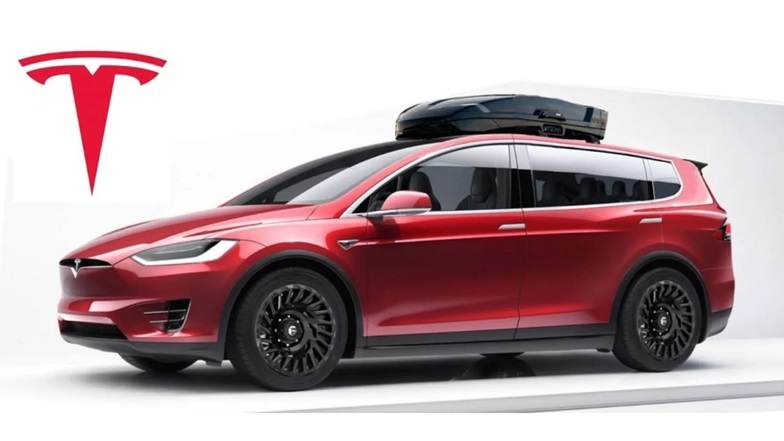Elon Musk has sparked fresh speculation about Tesla expanding into larger electric vehicles (EVs). Over the past few hours, Musk has responded to requests on social media for Tesla to build bigger cars, fueling rumors about a potential family-friendly EV. But while this is exciting news for fans, it’s worth remembering that Musk has teased similar plans in the past, often with little follow-through.
Let’s dive into what Musk has said, the context behind these hints, and whether Tesla is ready to roll out a spacious, high-capacity EV.

The Latest Musk Teasers on Bigger EVs
Recently, two Tesla fans on X (formerly Twitter) asked Musk to develop larger EVs, emphasizing the need for vehicles to accommodate big families. Musk, who has been vocal about his concerns over declining birth rates, seemed receptive.
- Response 1: Musk replied with a simple “OK.”
- Response 2: In another tweet, he referenced the Tesla Robovan and hinted at “some other things.”
This isn’t the first time Musk has hinted at bigger EVs. Over the years, he’s floated the idea of high-capacity electric vehicles, but many of these concepts remain in the planning stages.
Tesla’s History with Larger EV Ideas
Tesla has long teased the possibility of vehicles designed for high passenger density. Here’s a timeline of notable mentions:
- 2016 Product Roadmap: Tesla introduced the idea of a “high passenger-density urban transport” vehicle. However, the concept has yet to materialize.
- The Robovan (2024): Unveiled as part of Tesla’s autonomous vehicle push, this futuristic vehicle lacks steering wheels and pedals, making it more of a self-driving experiment than a conventional family car.
- Electric Van Discussions: Musk has mentioned electric vans multiple times in recent years, but the company has yet to launch one.
Tesla’s broader shift toward autonomous driving has slowed the development of traditional vehicles, with projects like the Cybercab and Robotvan taking priority.
What’s Coming Next?
Tesla is expected to unveil two new vehicles in 2025, but both are rumored to be based on the Model 3 and Model Y platforms. This suggests they’ll likely be compact or mid-sized cars rather than the larger vehicles fans are hoping for.
Why an Electric Van Could Be a Game-Changer
A Tesla van with flexible configurations for cargo, camping, or passengers could be a strategic addition to the company’s lineup. Here’s why it makes sense:
- Growing Demand for EV Vans: Brands like Rivian and Ford are already capitalizing on the electric van market. A Tesla version could shake up the competition.
- Versatility: An EV van that supports various uses—family trips, deliveries, or off-grid adventures—would appeal to a broad audience.
- Completing Tesla’s Lineup: While Tesla excels in sedans, crossovers, and soon pickup trucks (with the Cybertruck), it lacks an offering for large families or businesses needing spacious transport.
However, Tesla’s focus on autonomous vehicles might delay this kind of project. Musk’s vision of a steering wheel-free future could mean high-capacity EVs are tied to Tesla’s self-driving milestones.
Robovan vs. Electric Van for Families
| Feature | Tesla Robovan | Hypothetical Family Electric Van |
|---|---|---|
| Purpose | Autonomous urban transport | Family trips, cargo, and camping |
| Driving Mode | Fully self-driving (no controls) | Human-driven with optional autonomy |
| Passenger Capacity | High (for urban commutes) | Flexible (family-focused design) |
| Availability | Still a concept | Yet to be announced |
| Key Challenge | Reliance on self-driving tech | Balancing cost, space, and EV range |
Skepticism Around Musk’s Promises
While Musk’s hints are exciting, many observers approach these announcements with caution. Tesla has a history of ambitious ideas that either take years to develop or are shelved entirely.
Critics argue that Tesla should prioritize expanding its human-driven EV lineup before fully committing to autonomous-only projects. Balancing innovation with practicality could help Tesla meet more immediate consumer demands while still working on its self-driving vision.
Should Tesla Focus on Bigger EVs?
Absolutely. An electric van or larger vehicle could:
- Attract families and businesses looking for spacious, sustainable transport.
- Compete with established EV vans like the Rivian R1S or Ford E-Transit.
- Diversify Tesla’s offerings, reducing dependency on its sedan and crossover models.
However, Tesla’s leadership must strike a balance between futuristic concepts like the Robovan and more practical, human-driven vehicles that can hit the market sooner.
Elon Musk’s latest comments hint at Tesla’s potential entry into the larger EV market, but fans shouldn’t hold their breath. While an electric van would make a valuable addition to Tesla’s lineup, it’s unclear when—or if—it will happen.
For now, Tesla enthusiasts will have to wait and see whether Musk’s vision translates into a real-world product. Until then, Tesla’s focus remains on growing its current lineup and achieving its ambitious self-driving goals.
Related Post
